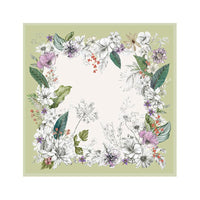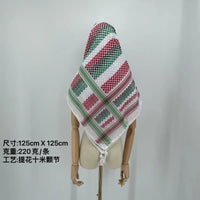Should Beach Towels Be Thick or Thin?
Introduction
Hey there! Are you gearing up for a beach vacation or planning to spend some quality time by the pool? One essential item you’ll definitely need is a beach towel. But have you ever wondered whether beach towels should be thick or thin? It’s a question that often pops up when we’re on the hunt for the perfect towel to lounge on while enjoying the sun and surf. Well, you’re in luck because in this article, we’ll dive into the debate and help you decide which type of beach towel suits your needs best. So, grab your shades and let’s get started!
Thick vs. Thin Beach Towels: The Great Towel Dilemma
When it comes to beach towels, there’s no shortage of options available. From vibrant patterns to different sizes and materials, it’s easy to get overwhelmed. But the most fundamental distinction among beach towels lies in their thickness. Some prefer thick, plush towels that feel luxurious to the touch, while others opt for thinner, more lightweight options that dry quickly and are easy to carry around. So, which one should you choose? Let’s weigh the pros and cons of both types.
Understanding Thickness and GSM for Beach Towels
What is Thickness?
When we talk about thickness in beach towels, we’re referring to the depth or fluffiness of the fabric. Thick towels are usually made from higher-density materials, resulting in a plush and cushioned feel. They offer a sense of luxury, making you feel like you’re wrapped in a cozy cloud on the beach.
The Role of GSM
GSM, or grams per square meter, is a measurement used to determine the weight and density of fabrics. In the context of beach towels, GSM refers to the weight of the towel per square meter of fabric. It’s an essential factor to consider when choosing between thick and thin options.
- High GSM (Thick Towels): Towels with a GSM of 400 to 600 are considered medium-weight and provide a good balance between thickness and practicality. They offer a decent level of plushness while still being lightweight and easy to carry.

- Low GSM (Thin Towels): Towels with a GSM ranging from 200 to 400 are thinner and lighter. These towels are often preferred for their quick-drying properties and compactness, making them ideal for travel and outdoor activities.
Pros and Cons of Thick Beach Towels
Pros
- Plush and Luxurious Feel: One of the primary reasons to choose a thicker beach towel is the indulgent and luxurious feel it offers. The extra thickness provides a cushioned and comfortable surface for lounging on the beach.
- Enhanced Absorbency: Thicker towels generally have a higher absorbency rate due to their denser fibers. They can effectively soak up water, making them ideal for drying off after a swim or wiping away moisture from your skin.
Cons
- Heavier: One of the downsides of opting for a thicker beach towel is the additional weight it carries. Thick towels tend to be heavier due to their increased density and fabric volume.
- Takes Longer to Dry: Thicker towels typically take longer to dry compared to their thinner counterparts. The dense fabric and higher absorbency mean that the towel retains more moisture.
Pros and Cons of Thin Beach Towels
Pros
- Lightweight and Easy to Carry: One of the primary benefits of a thin beach towel is its lightweight nature. Thin towels are often made from lighter materials and have a lower density, making them easier to carry.
- Quick-Drying: One of the standout advantages of a thin beach towel is its quick-drying capability. The thinner fabric and lower absorbency rate enable these towels to shed moisture faster.
Cons
- Less Comfortable: One drawback of opting for a thin beach towel is that it may not provide the same level of comfort as a thicker towel or a dedicated beach blanket. The thin fabric lacks the plushness and cushioning that a thicker towel offers.
Different Types of Beach Towels
When it comes to beach towels, there is a wide range of options available, each with its own unique characteristics and benefits. Let’s explore some of the different types of beach towels:
- Cotton Beach Towels: Known for their softness, absorbency, and durability. Cotton towels come in various thicknesses, ranging from thin and lightweight to thick and plush.
- Terry Beach Towels: A specific type of cotton towel that features loops or piles on both sides of the fabric. These loops enhance the absorbency and softness of the towel.

- Turkish Beach Towels: Also known as peshtemal or fouta towels, these are lightweight and versatile. They are traditionally made from Turkish cotton and are known for their absorbency and quick-drying capabilities.
- Microfiber Beach Towels: Made from synthetic fibers, typically a blend of polyester and polyamide. These towels are highly absorbent and quick-drying.
Conclusion
In conclusion, when deciding between a thick or thin beach towel, it ultimately boils down to personal preference and specific needs. Thick towels offer a plush and luxurious feel, along with enhanced absorbency, making them ideal for those seeking comfort and indulgence. However, they can be heavier and take longer to dry. On the other hand, thin towels are lightweight, easy to carry, and quick to dry, making them convenient for travel and outdoor activities. They may lack the same level of comfort as thicker towels but provide practicality and portability.
It’s important to consider the pros and cons of each option and assess your priorities. Whether you opt for a thick or thin towel, the most important thing is to find one that brings you comfort, functionality, and enjoyment during your beach adventures. So, consider your needs, explore the different options, and select the perfect beach towel that will enhance your beach experiences.






